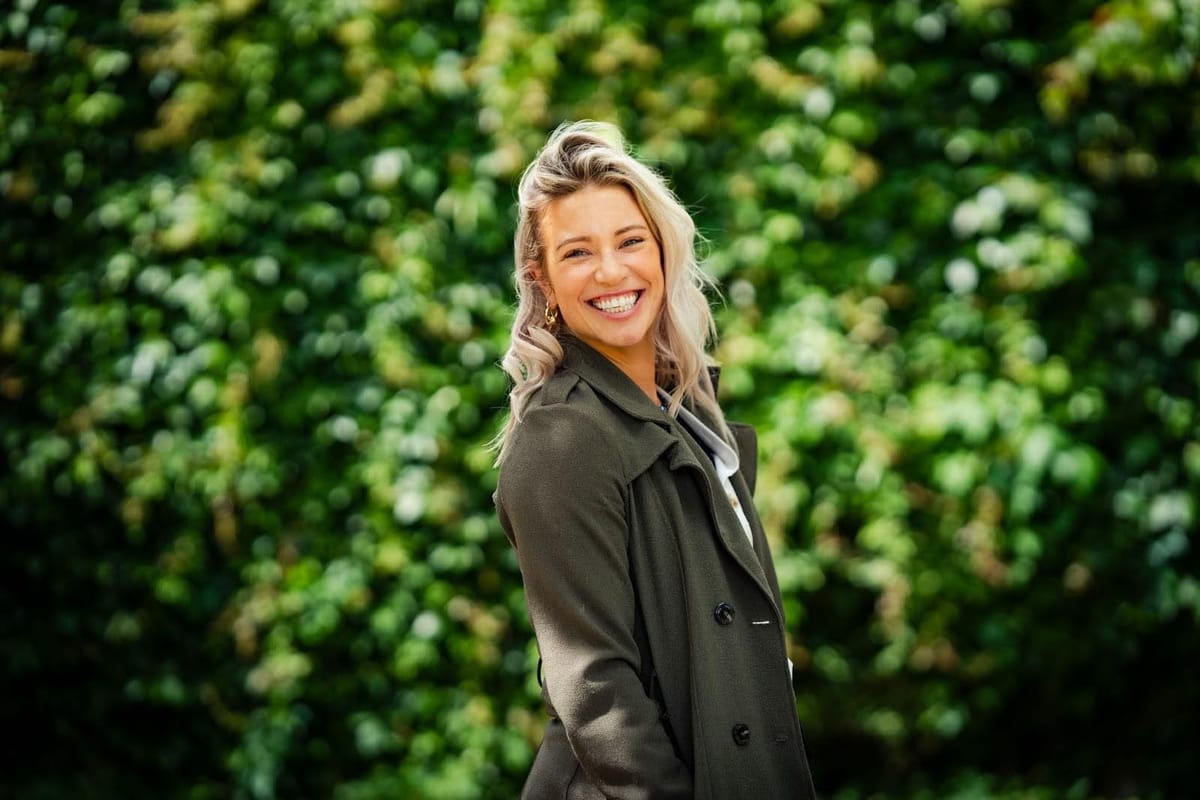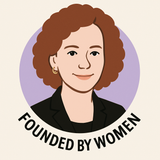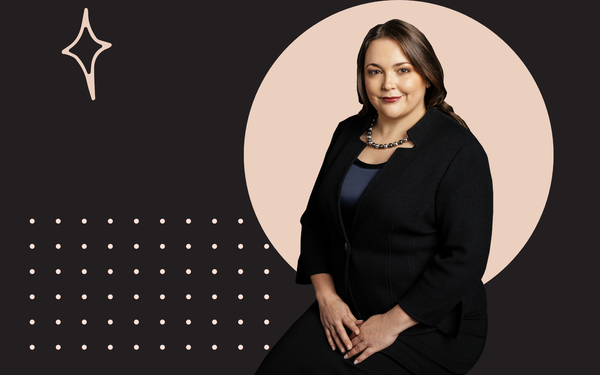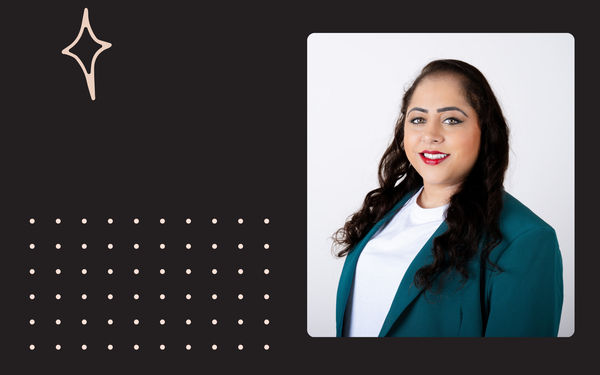Walking the Walk: How Wiser's Head of People Champions Real Cultural Change

In this candid Q&A, Ellie Farnfield, Head of People at award-winning employer brand agency Wiser, shares her unfiltered perspective on what authentic workplace inclusion really looks like beyond the polished policies and social media slogans.
From the everyday details that make employees feel they truly belong—like period products in bathrooms and creating space for different leadership styles—to dismantling the misconception that you need to "perform" for young talent, Ellie reveals how Wiser has 61% female representation not through quotas, but by building an environment where women don't have to earn the right to be taken seriously.
She explores the evolution of People teams from administrative functions to strategic culture drivers, the false tension between data-driven strategy and human intuition, and why "soft skills" like empathy are actually power skills in disguise. This is essential reading for anyone looking to move beyond surface-level diversity initiatives toward creating workplaces where authentic inclusion happens in the moments when no one's watching.
1. As a woman leading people strategy at an employer branding agency, you're constantly advising clients on building authentic workplace cultures. How do you ensure Wiser 'walks the walk' when it comes to creating an inclusive environment where women can thrive, and what advice do you give clients about this?
‘Authentic culture’ is something a lot of companies talk about - often packaging it up into a polished policy or into a snappy slogan for social. But for me, as someone leading people strategy and as a woman navigating work and life, it’s never really been about the words. It’s about the everyday moments, the stuff you feel in your gut when you walk into a room.
It’s how people behave when no one’s watching. The quiet signals that tell you it’s safe to speak up, to say “I’m not okay,” to lead in your own way. It’s the little things that let people show up fully, not just the polished, professional version of themselves, but the real one. At the heart of that is emotional honesty and mutual respect. Without those, nothing real sticks.
Yes, we advise clients on building inclusive cultures. But the harder, more important work is turning that mirror inward, and at Wiser, we do. Regularly. Deliberately. With humility.
Inclusion isn’t just a bold statement or a pulse survey (though they have their place). It’s in the day to day details: period products in the bathrooms, care items for different skin and hair types, and thoughtful touches that quietly say, you belong here. It’s in creating space for women to be and lead how they want - with quiet confidence, loud ambition, or anything in between. And it’s about recognising that not everyone works the same way. Some thrive in chaos; others need calm and structure. We make space for both.
Culture isn’t one-size-fits-all. It’s shaped by the choices you make when it would be easier not to. In who and how you celebrate, how you pay attention to different needs and perspectives, and how willing you are to evolve. It shows up in how you onboard people, mentor them, set expectations, and call things out when they’re not right.
And crucially, it’s never finished. Culture isn’t a checkbox. It’s a conversation… one we’re committed to continuing, even when it’s uncomfortable.
2. What's the biggest misconception you see companies making when trying to attract early talent, particularly young women entering the workforce? How do you help organizations shift from selling jobs to building genuine connections that address what the next generation of female professionals really wants?
It’s the assumption that you need to ‘perform’ for them. Over-package the opportunity. Shout about “female-friendly” benefits without actually creating an environment where women can grow, lead, and feel like they belong.
Too often, campaigns are built on assumptions rather than insight. They paint women as a single persona - caring, collaborative, confident (but not too confident). But women aren’t a monolith. They’re multifaceted, messy, contradictory, and brilliant. But their needs aren’t complicated. They want clarity, opportunity, and to be seen and supported as individuals with different ambitions, working styles, and ways of showing up.
For me, it’s never been about attraction strategies that sell. It’s about building roles and environments that genuinely serve. That means putting real thought into progression, mentorship, flexibility, fairness, and who gets to be in the room, consistently not occasionally.
At Wiser, that shows up in the way we hire. We’ve built a structured evaluation process to reduce bias, using behavioural questions and scorecards instead of relying on ‘gut feel’. It’s how we’ve ended up with 61% women across the business. Not because of a target or quotas, but because people stay and grow when they’re seen and supported.
It’s not about selling roles. It’s about building an environment where women don’t have to earn the right to be taken seriously. Where they’re backed early, stretched often, and trusted to lead in a way that feels true to them.
3. As a woman in leadership, how have you seen the role of People teams evolve from traditional HR to becoming champions of workplace equity and culture change? What unique perspective do women bring to this transformation?
The most progressive companies have reimagined their People teams - not as back-office administrators, but as strategic, cultural drivers. We’ve moved from managing process to shaping experience. From admin to advocacy. Wiser is a brilliant example of that shift: a business that values health, happiness and humanity just as much as performance and policies.
Of course, I still hold the HR foundations - the necessary but not always headline-grabbing stuff. But the real impact comes from shaping the culture those systems sit within. We’re no longer behind the scenes. We’re at the table, helping to define what the workplace feels like.
That means I don’t just write policy, I help shape how people experience work, every day.
Whether it’s through our Purple Stories video series or the way we listen through pulse surveys, we focus on the voices of the people actually living the culture, not just measuring it. Because meaningful change doesn’t come from paperwork. It comes from making space for people to be seen, heard, and real. And from valuing lived experience > surface-level labels.
4. In your role, you're constantly balancing data-driven people strategies with the more intuitive, human side of leadership. As a woman leader, how do you merge the soul of understanding what truly motivates people with the strategy of delivering measurable outcomes - and how has your gender influenced your approach to this balance?
Balancing data-driven people strategies with human intuition isn’t a tension - it’s a partnership.
Data gives clarity and direction; empathy gives context and depth. Relying on both to make meaningful decisions enables our culture to become intentional, our moves to be meaningful and our company to scale.
It’s not gendered. It’s just smart leadership.
5. Looking back at your career path as a woman in People leadership, what's some pieces of advice you wish you’d been given when you were starting out? What would you tell other women aspiring to build better workplaces?
I’d tell anyone aspiring to build a better workplace…
“You’re not too empathetic - you’re emotionally intelligent. Don’t trade that in.”
Early in my career, I thought leadership meant being rigid, detached, or the loudest voice in the room. I wish someone had told me that quiet strength, deep listening, and compassion are absolutely not soft skills - they’re power skills.
Are you a woman leader with an inspiring journey to tell? Founded by Women is on a mission to elevate and amplify the voices of women making an impact.
If you're breaking barriers, driving change, or paving the way for others, we’d love to feature your story. Get in touch with us today!
👉 hi@foundedbywomen.org


